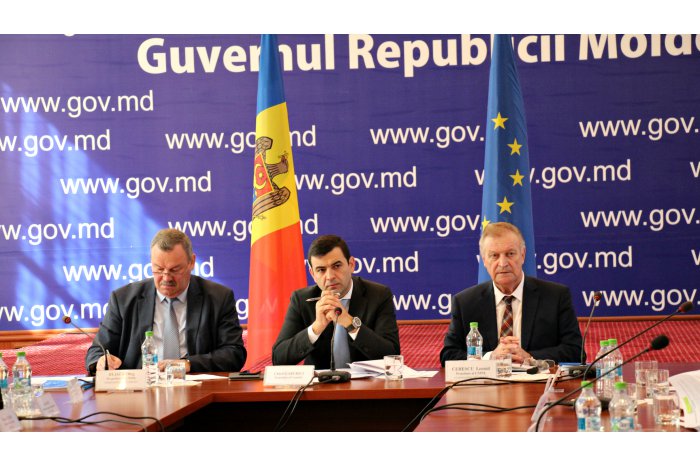Moldovan national commission for collective consultations, negotiations propose working out strategy to fight envelope salary, unregistered labour phenomena
20:54 | 25.05.2018 Category: Economic
Chisinau, 25 May /MOLDPRES/ The national commission for collective consultations and negotiations (CNCNC), which held a meeting today, launched a proposal to work out a national strategy of fighting the phenomena of ‘’unregistered labour’’ and envelope salary. The participants in the meeting also stressed the need to set up a governmental council to prevent these phenomena.
‘’We should undertake concrete measures to combat the phenomenon of envelope salary and ‘’unregistered labour’’, initiate the improvement of the legal framework and correct calculation of the coefficient of the official salary, so that the citizen can benefit from insured salaries and pensions,’’ the head of the national commission for collective consultations, Economics and Infrastructure Minister Chiril Gaburici said.
The minister stressed that legislative amendments should be promoted and publicized, campaigns of raising the awareness of employers should be organized, in order to observe the legislation and ensure the fair right to labour. Also, internal control should be carried out to improve the labour conditions. ‘’All these actions will contribute to fighting the shadow economy and the informal labour,’’ Chiril Gaburici said.
Representatives of the State Labour Inspectorate, Finance Ministry, National Trade Unions Confederation of Moldova, at the meeting of the CNCNC commission’s meeting, unveiled reports on measures undertaken to diminish the phenomena of informal employment and the envelope salary. The rapporteurs noted that the fighting of these phenomena would essentially increase the revenues to the state budget and the budget of the mandatory health insurances accounts.
According to the National Statistics Bureau (BNS), in 2017, seven per cent of the wage earners received envelope salaries: 5.8 per cent of them got all salary in envelope and 1.2 per cent – a part of it. The sectors with most workers remunerated unofficially are: agriculture, with a share of 42 per cent, followed by the trade with almost 20 per cent and industry with 8.6 per cent.
The consequences of the unregistered labour do not imply only the fact that workers are exposed to dangerous working conditions and lower earnings, but also the fact that this deprives the government of revenues and undermines the social protection system, experts said. Employees without legal forms are not insured for predictable and unpredictable risks, such as all kinds of accidents or diseases, and so they will not enjoy benefits and assistance in case of falling sick. Besides, they cannot borrow a bank credit and do not exercise constitutional collective rights, such as the right to association in trade unions, to negotiation of the labour collective contract.
Earlier, trade unions have been estimating that the national public budget annually loses 5.6 billion lei because of the failure to tax the envelope salaries.
(Reporter V. Bercu, editor L. Alcaza)

